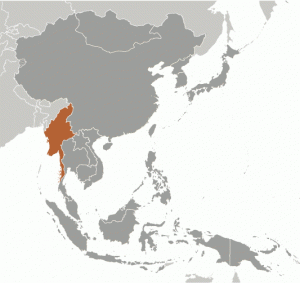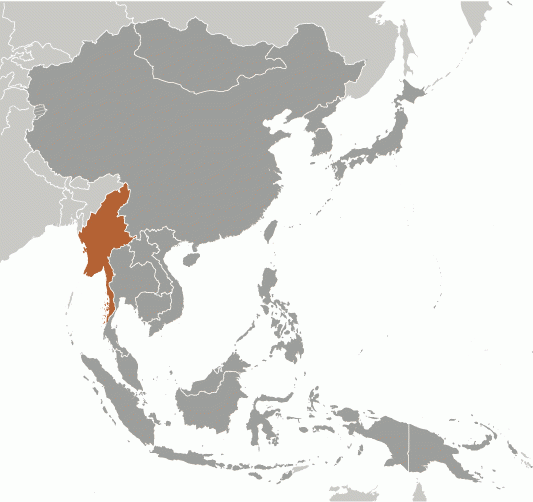Seeds of the gospel were planted by the first American Christian missionary to Myanmar’s ethnic minority Chin people in the 1800s. Those seeds are bearing fruit in major U.S. cities, Thailand and around the world.
Although they are a small ethnic group in Myanmar (formerly called Burma), a diaspora of hundreds of thousands of Chin people are spreading across Asia and now the West. Those among them who are Christians are planting churches wherever they go.https://weedinfocus.com
Up to 170,000 Chin people have immigrated to the United States. One of those people, Zozum, pastor of a Chin church in Indianapolis, started his journey like many do: as a refugee.
 In 1994, Zozum went to New Delhi to study the Bible. Delhi was a center of political activism. By going there Zozum was at risk of being perceived as connected with a rebel movement. But his sense of ministry calling was strong.
In 1994, Zozum went to New Delhi to study the Bible. Delhi was a center of political activism. By going there Zozum was at risk of being perceived as connected with a rebel movement. But his sense of ministry calling was strong.
Since 1989 when Zozum had become a Christian on what he thought would be his deathbed, he wrestled with God about his calling to become a pastor. Although he grew up in a Christian home, Zozum had frequently been in poor health. Thus, his path to education as a pastor was difficult. It was made more so when, still in Dehli, he received a phone call from his brother warning him that he could not come back to Myanmar. Zozum was suspected by the Myanmar government of being a dangerous rebel.
He applied as a refugee under UNHCR, the United Nations Refugee Agency, and after 15 years was granted entry to the United States.
Zozum resettled in Indianapolis, where as many as 15,000 people from Myanmar now live. There, he became leader of a Chin congregation, the Matu Bethlehem Christian Fellowship. While the people were dedicated to meeting, it was difficult to find an appropriate space for worship. Zozum heard about The Point Church of the Nazarene in Greenwood, and went to meet with its pastor, Steve Rhoades.
Zozum and Rhoades spoke for several hours. Rhoades was happy to offer his building, but Zozum felt it would be difficult for his congregation to find transportation the 25 minutes’ distance from where most of his church members lived. The next day, Rhoades took him to meet with Ray McCrary, pastor of Indianapolis Southside Church of the Nazarene, and Ron Blake, the Indianapolis district superintendent. They discussed whether his congregation could worship at Indianapolis Southside Church of the Nazarene, which is located right in the midst of the Chin immigrant population in Indianapolis.
McCrary wanted to make sure the congregations shared similar doctrines.
“[Zozum] said, ‘I’m sitting here today because the Church of the Nazarene really intrigues me. I’ve been studying about the doctrine and it attracts me, and I would like to know more about the church.”
The two pastors entered into a mentoring relationship. They read several books together about holiness, a signature emphasis of the Nazarene denomination, and have continued to meet each week for discipleship and encouraging one another.
The Matu Bethlehem church and the Southside Nazarene church now share one building. By having a place that does not limit their numbers, the Matu Bethlehem congregation has grown to 125 in average attendance for its Sunday afternoon services.
 Although they are separate congregations within one building, the two groups are gradually partnering in different ways. The children from both churches meet together for Sunday school, and recently the two youth groups merged, as well. The congregations occasionally join for baptisms, potlucks and other social activities.
Although they are separate congregations within one building, the two groups are gradually partnering in different ways. The children from both churches meet together for Sunday school, and recently the two youth groups merged, as well. The congregations occasionally join for baptisms, potlucks and other social activities.
“God is bringing the mission field to us,” McCrary said. “It has been a journey (for the Southside congregation). In years past, this area has been a very white, English-speaking population. It’s no longer that. We have the choice of just shriveling up and dying, or ministering to the people who are here.”
Right now the two congregations continue to worship separately due to language and worship-style differences. But pastors Zozum and McCrary dream of eventually merging the congregations for morning worship. They continue gently working to help them all catch the same vision.
McCrary said of Zozum’s flock, “They’ve been very slow in integrating because they feel their lack of understanding of the culture, so they stay within their group. Because of their oppression, they are maybe a little suspicious of other people. It’s a process.”
To minister to the needs of recent Chin immigrants, Southside has opened its space during the week for English language, life skills and cultural adaptation classes provided by the Warren Township School System. The idea was suggested by one of the Chin people.
“My people need training in basic life skills,” the man had told McCrary. “These people will not be going back to Myanmar except to visit their family. They are going to have to integrate into the American culture.”
McCrary also began a discipleship class together with Zozum to provide spiritual training for some from Matu Bethlehem.
The churches’ relationship is not just practical, but has been an expression of love for both congregations.
“Once in a month we have a fellowship with the American church members and Matu church together,” said Nissa, a member of the Matu congregation. “They bring food and we also bring food, and we have some meeting and fellowship. We sing songs and pray and preach, and then after that we are eating together. We all enjoy it.
“These English-speaking people are very friendly,” she added. “Really they love us and show their love [by sharing] whatever we need.”
Friday, April 7, 2017

